The god of dirt came up to me many times and said so many wise and delectable things, I lay on the grass listening. -Mary Oliver
Last active 3 hours ago
Don't wanna be here? Send us removal request.
Text

The Waterbearers, by Victor Renault des Graviers (detail)
2K notes
·
View notes
Photo

Paul Czaiński (b.1954) - The Reader. Mixed media on paper.
739 notes
·
View notes
Photo

Rose Spahan and Jeanette Armstrong | Indians After Sex. 1995. Detail
“In Indians After Sex Rose Saphan and Jeannette Armstrong contest the disappearing imaginary of the North American Indian at the level of Native sexuality. Two Northwest Coastal–style masks lie in bed together, as one smokes a post-coital cigarette. These masks are far from the inanimate and sterile representations of Indigenous materialities found in museums—they are sexual and agential beings.” from Nation to Nation by Lindsay Nixon for Canadian Art. https://canadianart.ca/features/nation-to-nation/
Rose Spahan is a Salish woman from British Columbia, Canada, Rose was raised within her people’s territories on Vancouver Island. As an artist, teacher and curator, Rose works with emerging visual artists whose work in contemporary mediums transmits ancient visions. In keeping with the traditions she inherited from her people, Rose shares her experiences in the arts world with First Nations communities. Her mission in the arts is to motivate First Nations peoples towards personal growth, cultural integrity and creative ingenuity.
Jeanette Armstrong is a Syilx Okanagan author, educator, artist, and activist. Armstrong’s 1985 work Slash is considered the first novel by an Indigenous woman in Canada. Armstrong is best known for her involvement with the En'owkin Centre and for her writing. She has written about topics such as creativity, education, ecology, and Indigenous rights.
119 notes
·
View notes
Photo
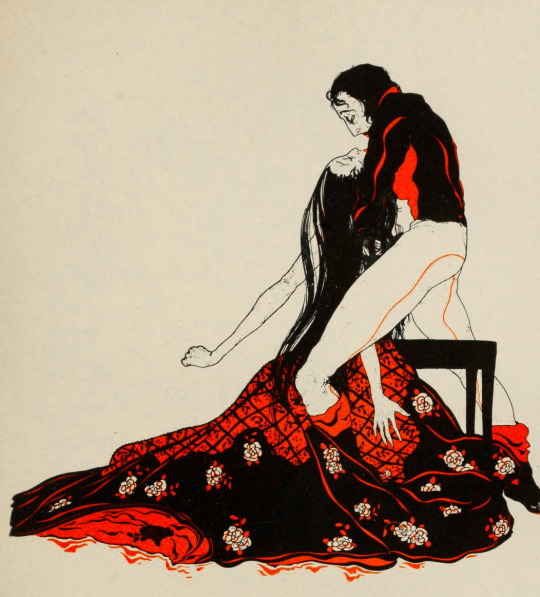
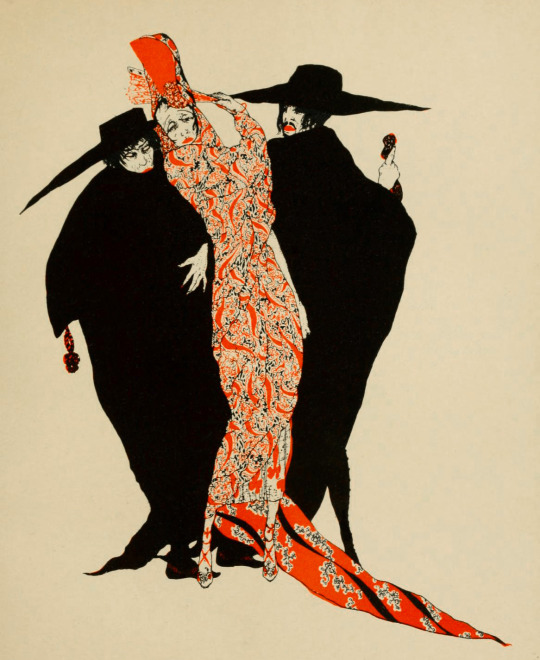
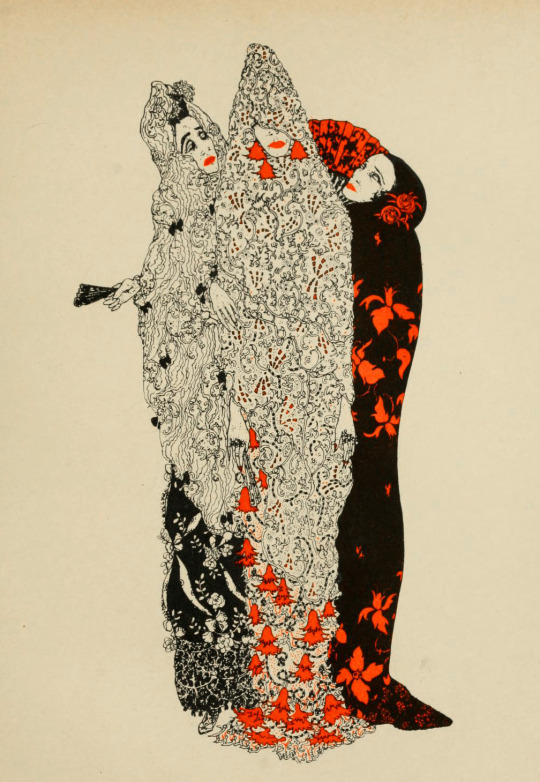
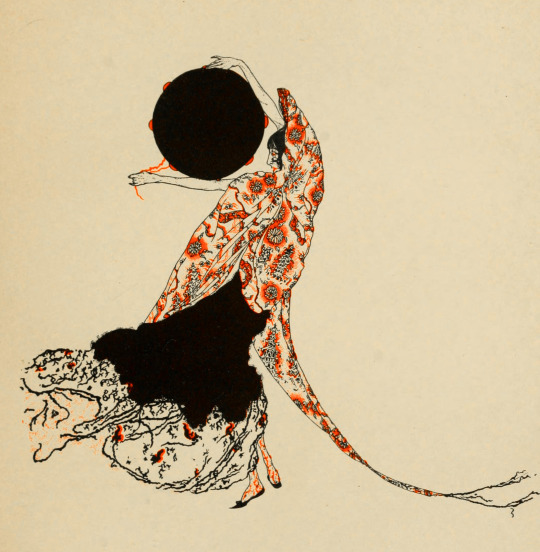


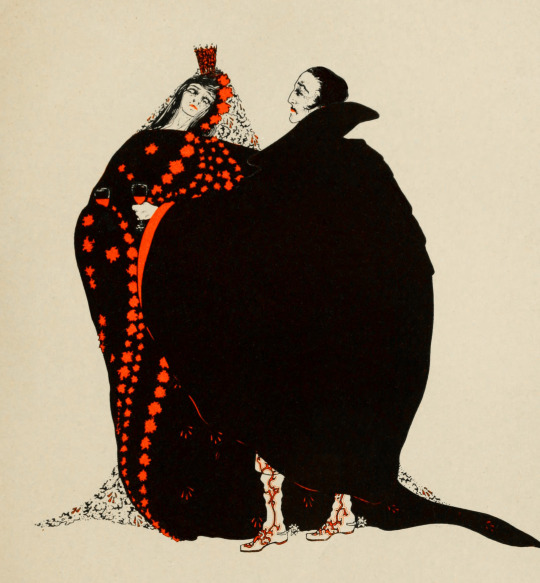
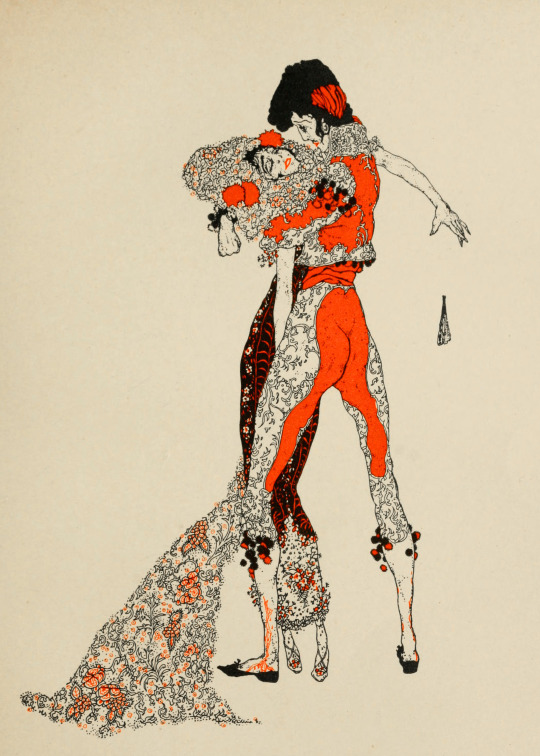
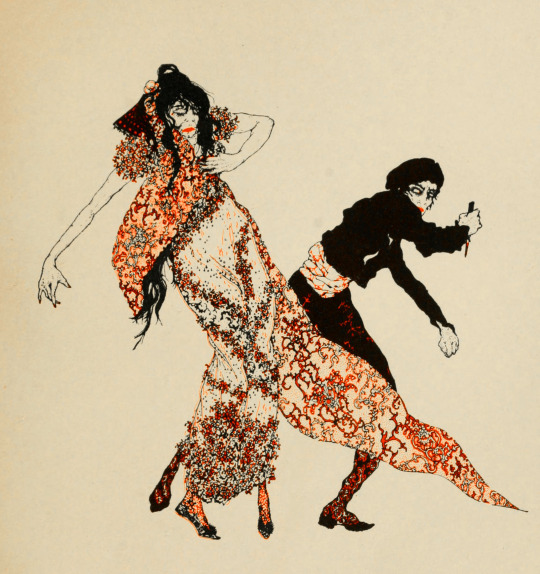

Alastair (Baron Hans Henning Voigt) (1887-1969), “Carmen” by Prosper Mérimée, 1920 Source “Carmen is a short story by Prosper Mérimée written in 1845 and published in 1847, from which was taken the opera of the same name, music by Georges Bizet, libretto by Henri Meilhac and Ludovic Halévy (1875).
Carmen deals with the subject of freedom, obsessive love and murderous jealousy. The short story mainly features the characters of Carmen and Don José, whose passionate love for the beautiful bohemian is one-sided, resulting in the murder of Carmen by Don José.” (Source)
2K notes
·
View notes
Text

Edward Sorel (born Edward Schwartz, 26 March 1929) is an American illustrator
117 notes
·
View notes











